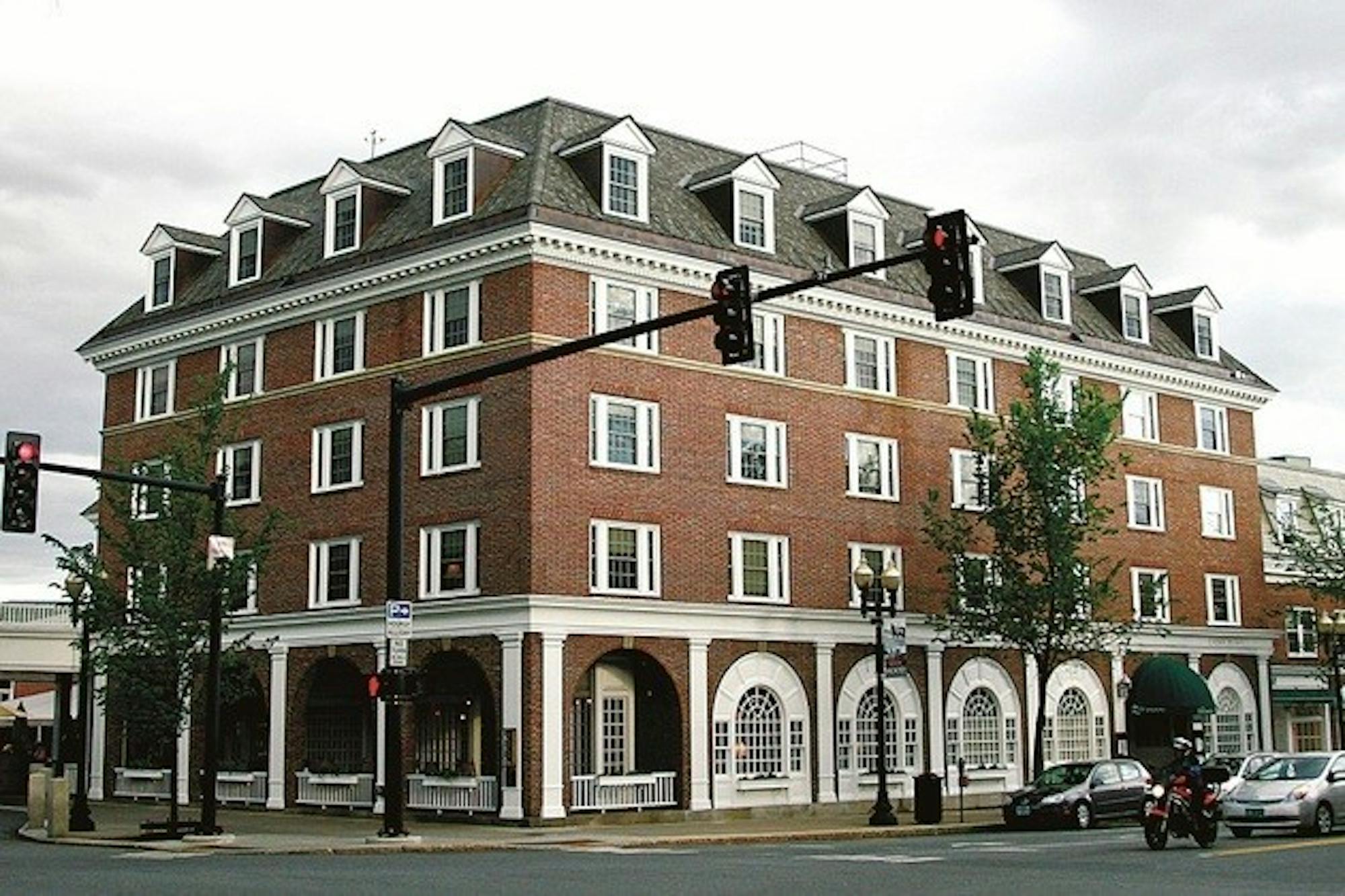On May 20, the Faculty of Arts and Sciences voted to censure College President Sian Leah Beilock during a faculty meeting. One hundred and eighty three faculty members voted in favor of the motion to censure Beilock, and 163 voted against it.
The total number of votes, 346, represents more than half of the roughly 600 total Arts and Sciences faculty members, according to Dartmouth’s website.
According to religion professor Christopher MacEvitt, who introduced the motion of censure against Beilock during the meeting, the motion “condemns the President’s actions on May 1.” An administrator present said the measure has no formal consequences.
On May 1, police arrested 89 students, faculty and community members during a pro-Palestinian protest, according to past reporting by The Dartmouth. In a letter published in The Dartmouth, Beilock wrote that she “made the decision to ask the Hanover Police Department for help taking down the encampment” and “stand[s] by that decision.”
College spokesperson Jana Barnello wrote in an email statement to The Dartmouth that the vote is reflective of “the deeply divided feelings across the nation and around the world about the Israel-Hamas war,” as well as concern over “the best ways to keep [Dartmouth’s] community safe.”
“Input from a community as devoted as ours is invaluable and serves to strengthen connection and understanding,” Barnello wrote. “We are focused on supporting one another, on continuing to make space for dialogue across difference and on moving forward together.”
The meeting was held in the Hanover Inn Grand Ballroom and lasted more than two hours. Between 200 and 300 faculty members and more than 100 observers attended in person. Approximately 80 additional faculty members attended the meeting via Zoom.
Dean of Faculty Elizabeth Smith delivered the opening address. She reflected on her 14 years working at Dartmouth and the “escalating tension” on campus during the past six months.
Smith called the tension during the May 6 faculty meeting — a Zoom gathering with around 500 attendees — “disturbing,” adding that she has noticed anger and grief among a large segment of the faculty.
“I get it — I understand that there are times when dialogue breaks down,” Smith said. “A return to dialogue is essential. Whatever you believe about recent events, we haven’t all behaved with dignity toward one another … My intention here today is to take one small step in bringing us back to real dialogue.”
Following Smith’s speech, Beilock briefly addressed the faculty.
“I stand here knowing many of you have turned against each other in this divided time,” Beilock said. “For that, I feel profound sadness.”
In her speech, Beilock also said the disciplinary process for arrested students has concluded. She added that no students will face suspension or expulsion, there will be no changes to students’ financial aid and the administration is “working hard” to get charges dropped for individuals who were inadvertently arrested.
The motion to censure Beilock was then introduced by MacEvitt and seconded by history professor Annelise Orleck — both of whom were arrested during the May 1 protest — before the meeting moved to a period of discussion.
Members of the faculty had the opportunity to give up-to-two-minute speeches in favor of or against the motion, or to provide commentary neither for nor against the measure.
The comments — which alternated between those for and against the measure — demonstrated a divided faculty, with evidence of both strong support for Beilock’s actions and also deep discontent.
Economics professor David Blanchflower, who opposed the motion, read from the text of a petition signed by 4,180 parents and alumni supporting Beilock’s actions.
English professor Alexander Chee argued in favor of the motion, saying that Beilock’s actions on May 1 created an “atmosphere that has made some of our most vulnerable community members feel less safe.”
Comparative literature professor Ainsely Morse also argued in favor of the measure and said Beilock’s actions on May 1 “point to a criminalization of free speech.”
Classics professor Margaret Graver argued against the measure, saying it will only continue to divide campus.
“Censuring the President will not bring anything good to Dartmouth,” Graver said. “It will not bring closure.”
Correction Appended (May 20, 10:37 p.m.): A previous version of this article stated that the College is working to get charges dropped for students. The College is working to get charges dropped for non-protesters and people who were inadvertently arrested. The article has been corrected.




